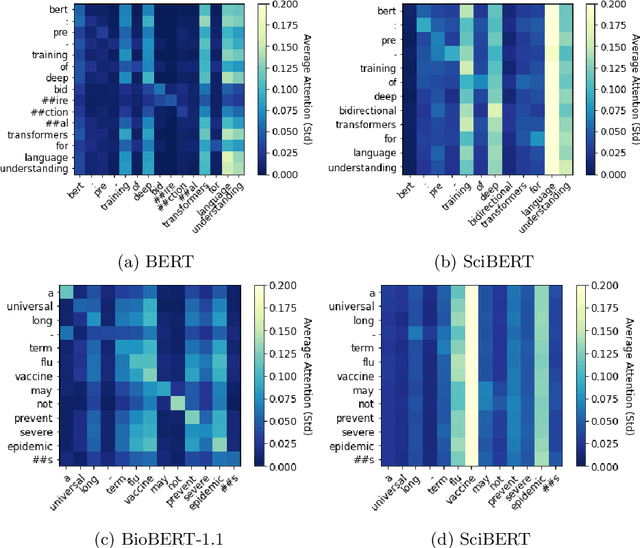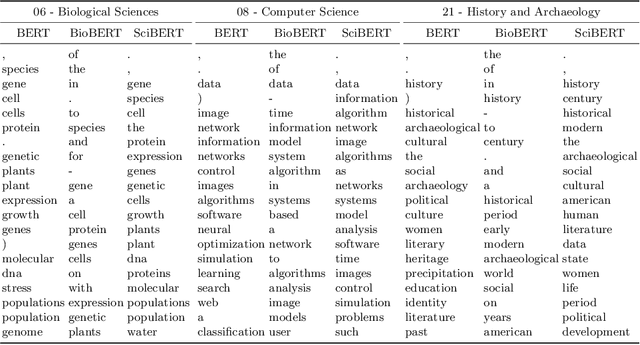Classifying Scientific Publications with BERT -- Is Self-Attention a Feature Selection Method?
Paper and Code
Jan 20, 2021



We investigate the self-attention mechanism of BERT in a fine-tuning scenario for the classification of scientific articles over a taxonomy of research disciplines. We observe how self-attention focuses on words that are highly related to the domain of the article. Particularly, a small subset of vocabulary words tends to receive most of the attention. We compare and evaluate the subset of the most attended words with feature selection methods normally used for text classification in order to characterize self-attention as a possible feature selection approach. Using ConceptNet as ground truth, we also find that attended words are more related to the research fields of the articles. However, conventional feature selection methods are still a better option to learn classifiers from scratch. This result suggests that, while self-attention identifies domain-relevant terms, the discriminatory information in BERT is encoded in the contextualized outputs and the classification layer. It also raises the question whether injecting feature selection methods in the self-attention mechanism could further optimize single sequence classification using transformers.
 Add to Chrome
Add to Chrome Add to Firefox
Add to Firefox Add to Edge
Add to Edge